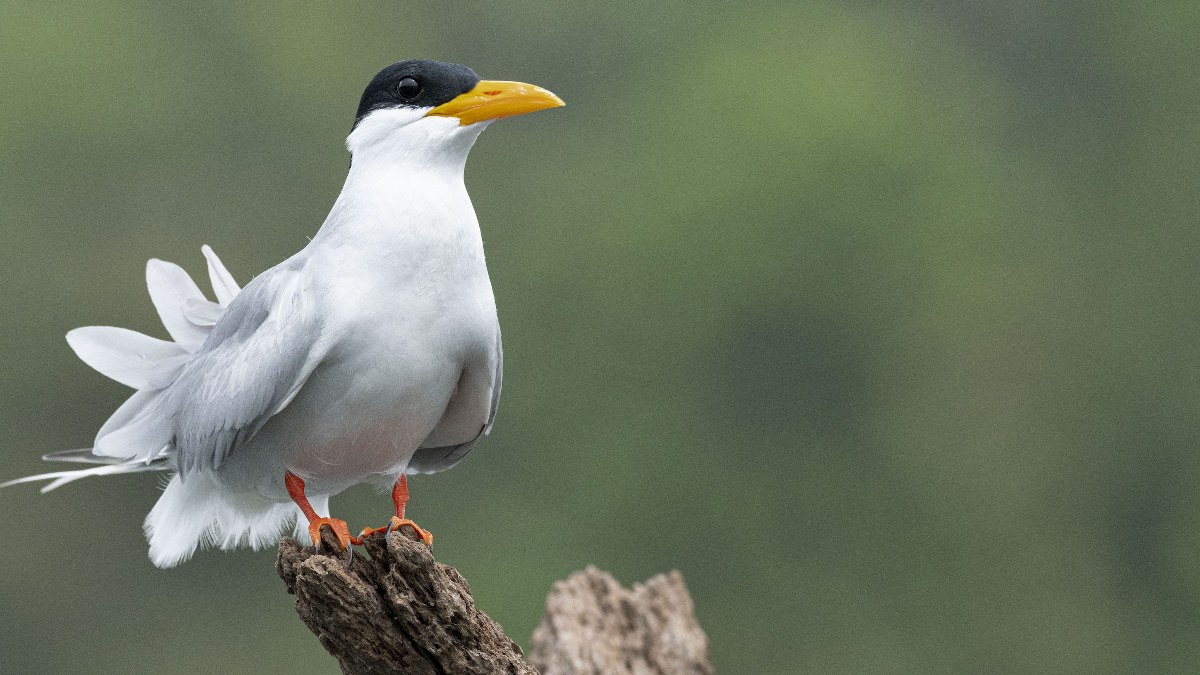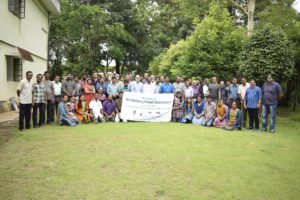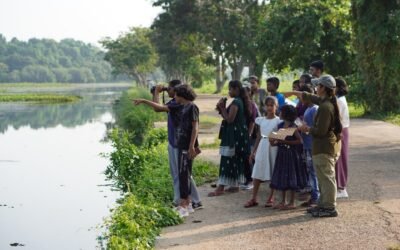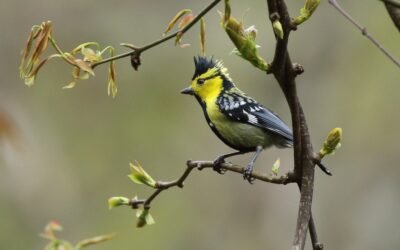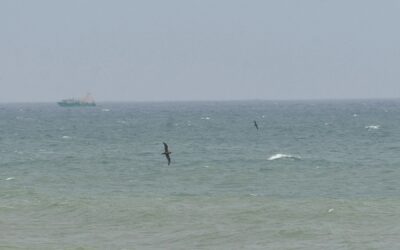For the fourth year in succession, a one day workshop on Bird Monitoring in Kerala was held at Centre for Wildlife Studies, College of Forestry, Kerala Agricultural University, Thrissur on 12 June 2017 . About 100 birdwatchers and nature enthusiasts, representing various organisations in Kerala participated in the workshop. Participants from Kerala represented Cochin Natural History Society (CNHS), Malabar Natural History Society (MNHS), World Wide Fund for Nature – Kerala (WWF), Bird Count India, Nature Conservation Foundation (NCF), National Centre for Biological Sciences (NCBS), KeralaBirder, Birdwatchers of Kerala, Hume’s Centre for Ecology & Wildlife Biology, College of Forestry, Kole Birders, Birders Ezhupunna etc. Discussions were centered around execution of Kerala Bird Atlas and other monitoring activities.
Agenda
| 09:00-09:30 | 30 | Introductions, Agenda Review, Review of 2016 Minutes |
| 09:30-10:00 | 30 | Kerala Bird Atlas: Recap and Results Overview |
| 10:00-10:30 | 30 | Kannur Bird Atlas: Results, Learnings & Concerns |
| 10:30-11:00 | 30 | Kerala Bird Atlas: Bird Map Analysis |
| 11:00-11:15 | 15 | Tea Break |
| 11.15-11.35 | 20 | OBC, GBBC & EBD: Results, Scope & Future |
| 11:35-11:55 | 20 | eBird Analysis Tools, Social Utility |
| 11:55-12:25 | 30 | Feedback on eBird – Concerns and Must Dos |
| 12:25-13:25 | 60 | Lunch Break |
| 13:25-15:00 | 90 | Kerala Bird Atlas: Atlas/Proto-atlas experience |
| 15:00-15:30 | 30 | Kerala Bird Atlas: Plan for 2017-18 |
| 15:30-15:45 | 15 | Tea Break |
| 15.45-16:05 | 20 | Heronry Count: Results, Concerns & Future Plans |
| 16.05-16:25 | 20 | Pelagic Survey: Results, Concerns & Future Plans |
| 16:25-16:45 | 20 | AWC: Results & Concerns |
| 16:45-17:00 | 15 | AOB |
Executive Summary
- Bird atlas surveys completed in ~50% of Kerala state. Atlas surveys conducted in 9 districts of the state. Project on track.
- Kannur Bird Atlas surveys 100% completed – bird atlas book release in Kannur planned during Wildlife Week (October 2017).
- 50% of Forest sub-cells to be covered along with forest surveys in wet and dry season in 2017-18 (rest in 2018-19).
- Representatives from four districts (Kasaragod, Malappuram, Kottayam & Kollam) confirmed survey plans for 2017-18.
- Great Backyard Bird Count (GBBC) / Onam Bird Count (OBC) / Endemic Bird Day (EBD) hailed as excellent recruitment programmes. Results till date consistent.
- Importance of relevant documentation in eBird stressed.
- Heronry Counts in 2016 executed in seven districts. Report under preparation.
- Heronry protection programme started in Kannur district.
- Pelagic surveys feeble in 2016-17. Strategy relook needed.
- AWC surveys conducted in most districts. Focus for next years discussed.
- Tools using eBird data demonstrated (See below for direct links)
Key Decisions
- Bird Atlas surveys for the forests in seven districts in 2017-18 covering 14 wildlife and forest divisions.
- Bird Atlas surveys for the non-forests in four districts in 2017-18.
- Kerala Bird Atlas Protocol modified for non-forests with minor changes.
- Forest department (wildlife as well as social forestry) keen to be involved in atlas surveys. Contacts to be established for support and collaboration in all districts.
- Pursue birding outreach actively during public events ike CBMP & OBC.
- Pelagic surveys in current model not scale-able. Actively pursue collaboration with scientific bodies focused on marine research.
- AWC eBird protocol to be stressed better so that coordinators use it correctly for submission.
Presentations
- Kerala Bird Atlas- Recap & Results Praveen J
- Kannur Bird Atlas: Planning, Execution & Results C Sashikumar & Roshnath R
- Kerala Bird Atlas: Review of Maps Praveen J
- Great Backyard Bird Count, Onam Bird Count and Endemic Bird day in Kerala: Results, Scope & Future Syamili Manoj & E.R. Sreekumar
- eBird Data: Tools & Utilities Praveen J (See below for direct links)
- eBird Outreach Premchand Reghuvaran
- Heronries of Kerala 2016 Roshnath R
- Asian Waterbird Census in Kerala: 2017 Results P O Nameer
Press Releases
See details of the 2016 Workshop.
See details of the 2015 Workshop.
See details of the 2014 Workshop.
eBird Tools
- MyEBirdApp (Developer: Abinand Reddy): https://birdcountindia.shinyapps.io/MyeBirdApp/
- BirdSurveyCrunch (Developer: Praveen J): https://paintedstork.shinyapps.io/birdsurveycrunch/
- Kerala Bird Atlas Maps (Developer: Abinand Reddy): https://birdcountindia.shinyapps.io/kerala_print/
- eBird Filter Generator (Developer: Praveen J): https://paintedstork.shinyapps.io/eBird-filter-generator/
- Bird Search (Developer: Ben Keen): https://birdsearch.org/
- IUCN Threshold Calculator (Developer: Praveen J): https://paintedstork.shinyapps.io/mcpcal/
- Explore Polygon (Developer: David Ellsworth): http://ebird-tools.thruhere.net/polygon.html
Header Image: River Tern Sterna aurantia by Ratish RL/ Macaulay Library

